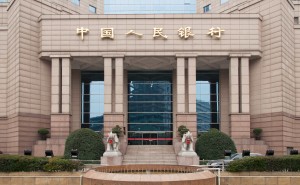 The head of the People’s Bank of China (PBOC) opened up about its proposed digital currency initiative in a new interview with Caixin Weekly today, suggesting that the Chinese central bank is considering options that do not use blockchain technologies in its development.
The head of the People’s Bank of China (PBOC) opened up about its proposed digital currency initiative in a new interview with Caixin Weekly today, suggesting that the Chinese central bank is considering options that do not use blockchain technologies in its development.
Speaking to the news source, governor Zhou Xiaochuan said that the PBOC is considering mobile payments, cloud computation, secure chip and blockchain tech as means to create and operate an electronic cash network.
Source: CoinDesk

 Although interest in bitcoin may have subsided, but interest in the underlying registration process — distributed ledgers or blockchains — has attracted the interest of global banks and exchanges, most notably Nasdaq.
Although interest in bitcoin may have subsided, but interest in the underlying registration process — distributed ledgers or blockchains — has attracted the interest of global banks and exchanges, most notably Nasdaq.





